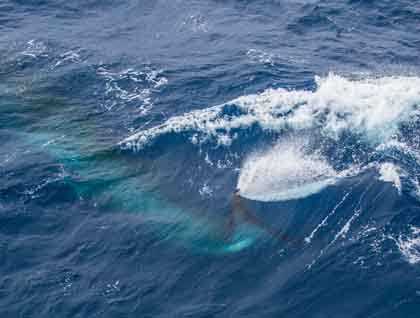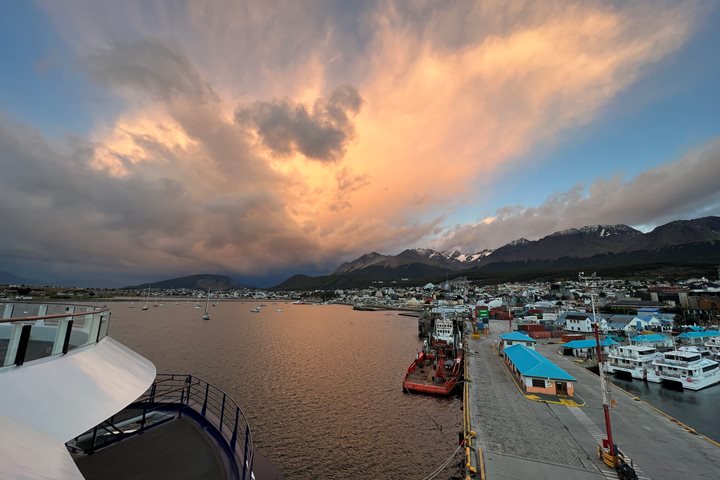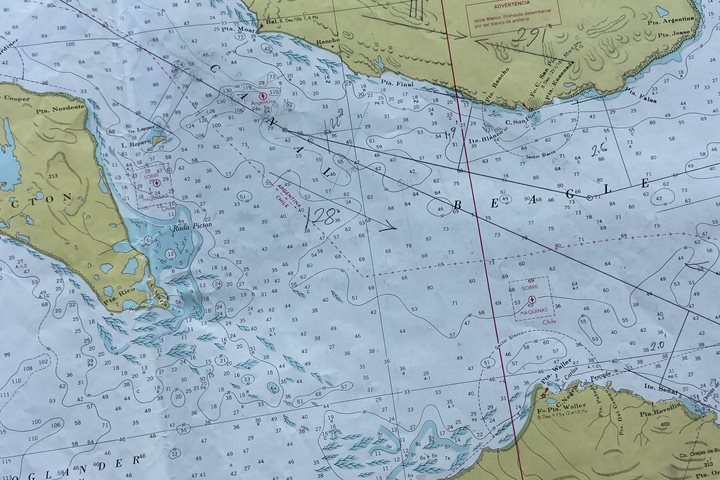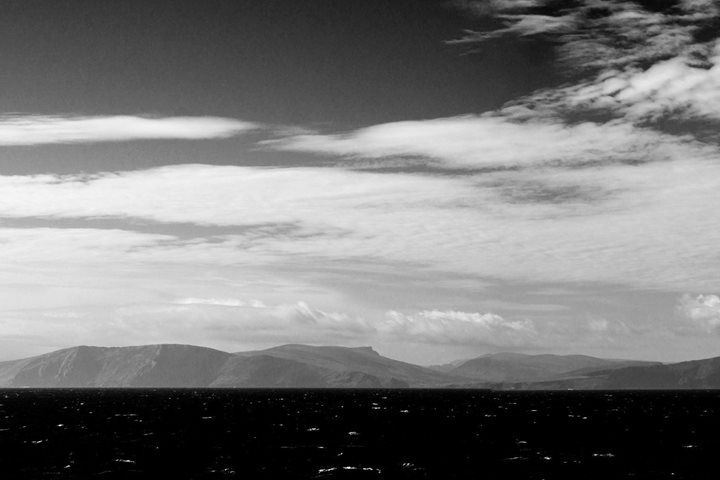A return across the Drake Passage after visiting Antarctica can be likened to the relief of exhaling after holding a long breath. This can be somewhat literal, especially as our voyage has been granted a comparatively calm crossing. After the constant whirlwind of frenetic activity spent ashore and in Zodiacs, a day at sea truly can feel like a release. As we ride over gentle swells, the knowledge that these waters hold the reputation and potential to be the roughest conditions on the planet gives one the sensation of tiptoeing over a sleeping dragon’s back. But even while we are moving away from the white continent our minds and thoughts have remained, waddling penguins and cerulean icebergs are seared into our brains. Even with an unbroken horizon all around us we still can recall the towering mountains and impressive ridgelines of the Peninsula, imagining them surrounding us. Maybe the strength of these memories alone have garnered the ship some protection from the southern winds.
While this expanse of blue can appear as somewhat desolate, we fail to see beyond the skin of the surface we pass over. In fact the Southern Ocean is far from a desert and is teeming with life, it mostly just lies below the limit of our gaze. Fish, krill, and plankton exist in relatively unknown and unexplored numbers, here more than anywhere else on the planet. There are however organisms that transit through the planes we cannot, feeding at depth and coming up to breathe, allowing us the merest glimpses into their lives. Reminding us that we are far from alone in these waters we pass by dozens of fin whales consuming food at the surface by lunging forward and gaping mouths wide open. Rorqual pleats along their throats enables an accordion-like expansion that allows for massive quantities of water and food to be brought into the now ballooned out animal. The undesirable sea water is then pushed out through a fibrous adaption called a baleen that traps all the desired food to be scraped up by the tongue and consumed. These cetaceans are the second largest in the world and also the fastest, able to easily out maneuver and outrun our vessel if they so choose. As we leave them to their feeding and watch their spouts slowly disappear behind us, puffs of vapor hanging into the air, it’s almost as if they were never there. Luckily we have our memories and when the rest of them finally catch up with us, hopefully they cross this expanse of ocean as easily as we have.







